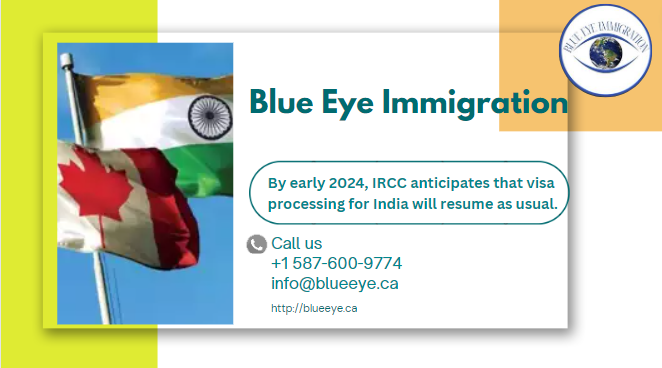According to information provided during a news conference with Canadian Immigration Minister Marc Miller on October 19, 2023, the continued conflict between Canada and India would cause delays in the processing of applications for Indian visas.
Miller highlighted, however, that immigrants from India contribute significantly to Canada and that Immigration, Refugees and Citizenship Canada (IRCC) will continue to welcome them.
What is the anticipated size of the backlog, and when will normal visa processing resume?
Senior IRCC officials who have informed Canadian stakeholders said they anticipate a backlog of 17,500 “final decisions” in Canada’s international immigration system over the next two months due to the decrease of staff in India. But by “early 2024,” the administration wants to resume normal processes.
As a result, this is possible since the 22 immigration employees who were removed from India will re-establish themselves and resume their jobs in Canada and the Philippines.
What led to the delayed processing of visa applications?
By October 20th, 2023, India formally intends to revoke immunity for all but 21 Canadian diplomats and families stationed in New Delhi. This implies that the immunity of 41 Canadian ambassadors and their 42 dependents is in jeopardy.
Removing diplomatic privileges and immunities is against international law, according to the IRCC, and India’s conduct is irrational and debilitating. Despite the fact that they were all performing their responsibilities in good faith and to the mutual advantage of the two nations, India has accredited each of the Canadian diplomats it is currently dismissing.
According to IRCC, operations and customer service would be hampered as a result of the mass expulsions.
What business processes would be affected?
All in-person services at consulates must be temporarily suspended, according to IRCC, until further notice. However, the IRCC will keep taking and handling applications from India. There are some application needs that must be fulfilled locally or on-site in a secure setting.
As a result, service quality for Indian citizens would be impacted by the shrinkage of the IRCC personnel in India. The team is down to five players from 27.
The remaining IRCC staff in India will focus on work that requires an in-country presence such as urgent processing, visa printing, risk assessment and overseeing key partners, including visa application centres, panel physicians and clinics that perform immigration medical exams. The rest of the work and staff will be reassigned across IRCC’s global processing network.
However, IRCC is hopeful India visa operations will return to normal in the early part of the New Year.
The effect on Visa Application Centers (VACs) will be what?
By changing the workload for Visa Application Centers (VACs), which now handle the bulk of applications from India, IRCC is attempting to lessen the impact.
Because VACs are run by outside parties, business as usual will continue. At one of the 10 IRCC centers in India, applicants can still submit biometrics, send passports, and receive administrative assistance.
